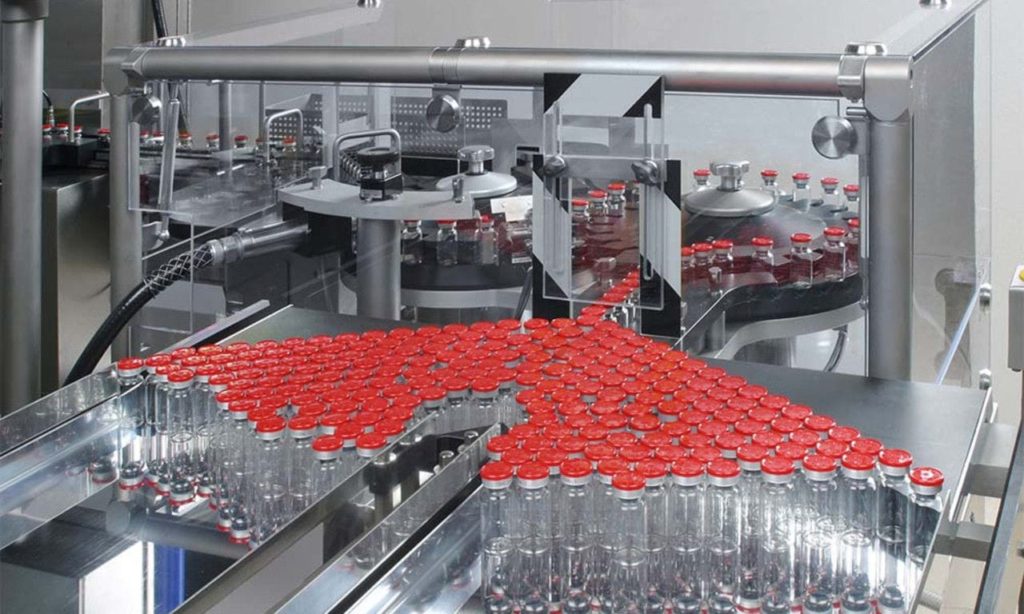The pharmaceutical industry relies heavily on efficient materials handling to ensure product quality, safety, and regulatory compliance. This comprehensive guide explores key aspects of materials handling for pharmaceutical companies, with a focus on plastic storage trays, pharmaceutical trays, injection molded trays, and tray loading machines.
The Importance of Materials Handling in Pharmaceuticals
Plastic Storage Trays: A Versatile Solution
Plastic storage trays have become indispensable in pharmaceutical operations due to their durability, cleanliness, and versatility.
Benefits of Plastic Storage Trays
- Contamination Prevention: Smooth surfaces minimize particle accumulation and facilitate easy cleaning.
- Chemical Resistance: High-quality plastics withstand exposure to various pharmaceutical compounds.
- Customization: Trays can be designed to accommodate specific product sizes and shapes.
- Stackability: Efficient use of vertical space in storage and transportation.
- Cost-effectiveness: Durable and reusable, offering long-term value.
Applications in Pharmaceutical Settings
Plastic storage trays find numerous applications throughout the pharmaceutical manufacturing and distribution process:
- Raw Material Storage: Organizing and protecting ingredients before production.
- Work-in-Progress Handling: Transporting partially completed products between manufacturing stages.
- Finished Product Storage: Safely storing completed medications prior to packaging.
- Quality Control: Organizing samples for testing and inspection.
- Distribution: Facilitating efficient order picking and shipping processes.
Pharmaceutical Trays: Specialized Solutions for the Industry
Pharmaceutical trays are designed specifically to meet the unique requirements of drug manufacturing and handling.
Key Features of Pharmaceutical Trays
- Cleanroom Compatibility: Manufactured to meet stringent cleanliness standards.
- Traceability: Often equipped with RFID tags or barcodes for inventory tracking.
- Temperature Resistance: Able to withstand sterilization processes and cold storage.
- Electrostatic Discharge (ESD) Protection: Preventing damage to sensitive electronic components.
- Ergonomic Design: Facilitating easy handling and reducing strain on workers.
Types of Pharmaceutical Trays
- Blister Pack Trays: Designed to hold and transport blister packs efficiently.
- Vial Trays: Featuring compartments sized for various vial dimensions.
- Tablet Trays: Optimized for handling bulk tablets during production and packaging.
- Syringe Trays: Securely holding pre-filled syringes during manufacturing and distribution.
Injection Molded Trays: Precision and Customization
Injection molding technology allows for the creation of highly precise and customized trays tailored to specific pharmaceutical applications.
Advantages of Injection Molded Trays
- Consistency: Uniform production ensures each tray meets exact specifications.
- Complex Designs: Ability to create intricate features and compartments.
- Material Selection: Wide range of FDA-approved plastics available.
- Cost-effective for Large Volumes: Efficient production for high-quantity orders.
- Rapid Prototyping: Quick iteration of designs for optimal functionality.
Design Considerations for Injection Molded Pharmaceutical Trays
- Product Compatibility: Ensuring the tray design accommodates specific drug formulations and packaging.
- Cleanability: Incorporating smooth surfaces and rounded corners for easy sanitization.
- Nesting and Stacking: Optimizing designs for efficient storage and transportation.
- Ventilation: Including appropriate airflow features for temperature-sensitive products.
- Handling Ergonomics: Designing grips and edges for safe and comfortable manual handling.

Tray Loading Machines: Automating Efficiency
Tray loading machines play a crucial role in automating the packaging process, significantly enhancing productivity and consistency in pharmaceutical operations.
Types of Tray Loading Machines
- Horizontal Loaders: Ideal for products that require gentle handling.
- Vertical Loaders: Efficient for products that can withstand dropping into trays.
- Robotic Loaders: Offering high precision and flexibility for complex loading patterns.
- Continuous Motion Loaders: Providing high-speed operation for large-scale production.
Key Features of Modern Tray Loading Machines
- Adjustable Settings: Easily adaptable to different tray sizes and product configurations.
- Vision Systems: Ensuring accurate product placement and quality control.
- Integration Capabilities: Seamlessly connecting with upstream and downstream equipment.
- User-friendly Interfaces: Simplifying operation and reducing training requirements.
- Data Logging: Recording production data for traceability and process optimization.
Selecting the Right Tray Loading Machine
When choosing a tray loading machine for pharmaceutical applications, consider the following factors:
- Production Volume: Matching machine capacity to your output requirements.
- Product Characteristics: Ensuring compatibility with fragile or irregularly shaped items.
- Changeover Time: Evaluating the ease of switching between different products or tray sizes.
- Footprint: Considering available floor space in your facility.
- Regulatory Compliance: Verifying adherence to GMP and other relevant standards.
Optimizing Materials Handling Workflows
Effective integration of plastic storage trays, pharmaceutical trays, injection molded trays, and tray loading machines can significantly enhance overall materials handling efficiency.
Best Practices for Workflow Optimization
- Standardization: Implement consistent tray sizes and designs across operations where possible.
- Automation Integration: Strategically incorporate tray loading machines to reduce manual handling.
- Lean Principles: Apply lean manufacturing concepts to minimize waste and optimize flow.
- Track and Trace: Implement robust tracking systems using RFID or barcode technology.
- Ergonomics: Design workstations and processes with employee comfort and safety in mind.
Case Study: Streamlining Operations with Integrated Tray Systems
A leading pharmaceutical manufacturer implemented a comprehensive tray management system, incorporating custom injection molded trays and automated loading machines. The results included:
- 30% reduction in product handling time
- 50% decrease in contamination incidents
- 25% improvement in overall production efficiency
Future Trends in Pharmaceutical Materials Handling
The pharmaceutical industry continues to evolve, driving innovations in materials handling technologies and practices.
Emerging Trends to Watch
- Smart Trays: Integration of IoT sensors for real-time monitoring of product conditions.
- Sustainable Materials: Development of eco-friendly, biodegradable tray options.
- AI-powered Loading Systems: Advanced algorithms optimizing tray loading patterns and efficiency.
- Modular Tray Designs: Flexible configurations adapting to changing production needs.
- Augmented Reality: AR-assisted picking and loading processes enhancing accuracy.
Regulatory Considerations for Pharmaceutical Trays and Handling Equipment
Compliance with regulatory standards is paramount in the pharmaceutical industry, extending to materials handling equipment and processes.
Key Regulatory Guidelines
- FDA 21 CFR Part 211: Good Manufacturing Practice for Finished Pharmaceuticals
- EU GMP Guidelines: European Union Good Manufacturing Practice
- ISO 13485: Quality Management Systems for Medical Devices
- USP <1079>: Good Storage and Shipping Practices
Ensuring Compliance in Tray and Equipment Selection
- Choose materials that meet FDA and other relevant regulatory approvals
- Implement robust cleaning and sanitization protocols for trays and loading equipment
- Maintain detailed documentation of tray and equipment specifications, maintenance, and usage
- Conduct regular audits to ensure ongoing compliance with GMP standards
Conclusion: Elevating Pharmaceutical Operations Through Advanced Materials Handling
The strategic implementation of plastic storage trays, pharmaceutical trays, injection molded trays, and tray loading machines can significantly enhance efficiency, quality, and compliance in pharmaceutical manufacturing and distribution. By carefully selecting and integrating these solutions, companies can optimize their materials handling processes, reduce risks, and ultimately deliver higher quality products to patients.As the industry continues to evolve, staying informed about emerging technologies and best practices in materials handling will be crucial for maintaining a competitive edge. Pharmaceutical companies that invest in advanced tray systems and automation technologies are well-positioned to meet the growing demands of the global healthcare market while ensuring the highest standards of product quality and safety.

